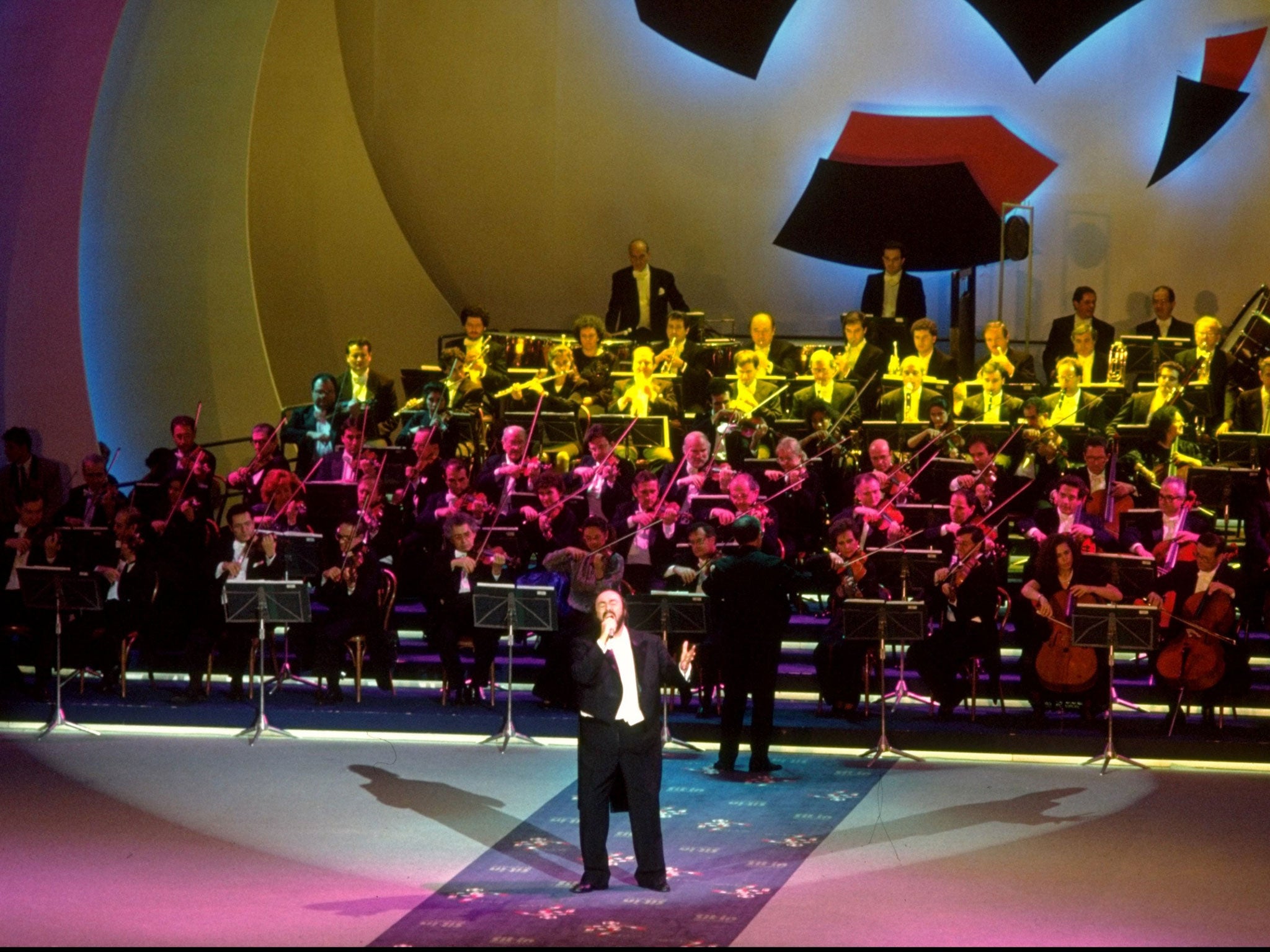A spellbinding soundtrack to love, life and loss
Nessun Dorma's appeal extends far beyond opera, says Jessica Duchen

Your support helps us to tell the story
From reproductive rights to climate change to Big Tech, The Independent is on the ground when the story is developing. Whether it's investigating the financials of Elon Musk's pro-Trump PAC or producing our latest documentary, 'The A Word', which shines a light on the American women fighting for reproductive rights, we know how important it is to parse out the facts from the messaging.
At such a critical moment in US history, we need reporters on the ground. Your donation allows us to keep sending journalists to speak to both sides of the story.
The Independent is trusted by Americans across the entire political spectrum. And unlike many other quality news outlets, we choose not to lock Americans out of our reporting and analysis with paywalls. We believe quality journalism should be available to everyone, paid for by those who can afford it.
Your support makes all the difference.It is one of the biggest showstoppers in all opera. It has everything: a big, memorable melody, surging phrases that rise to an emotional peak, and a terrific high note at the conclusion. It is, of course, "Nessun Dorma" ("None shall sleep"), the most famous aria of Puccini's Turandot, which is about to open at the Royal Opera House.
But it was as the signature theme of the 1990 World Cup that this music rocketed to pretty much universal public consciousness. What piece could have been more appropriate? The tournament took place in Italy, the homeland of Puccini and opera alike, and the tenor's triumphant "Vincero!" – "I shall win!" – simply said it all. West Germany took the trophy, but "Nessun Dorma" was a winner in its own right. It reached No 2 in the UK singles charts and its enduring popularity ever since has proved that when people can hear it without preconceptions, Puccini's appeal knows no bounds.
That wasn't the first time this aria's spellbinding properties had been appropriated beyond the operatic stage, nor was it the last. It seems to be a favourite with film directors, popping up to fine effect in movies as diverse as The Witches of Eastwick, The Killing Fields, New York Stories, The Mirror Has Two Faces, and more; and the songwriters Roy Orbison and Jeff Lynne borrowed it in 1989 for "A Love So Beautiful".
Its origins were very different. Puccini began to compose Turandot in 1920, basing it on a play by Carlo Gozzi. The setting is ancient China, the story a timeless fable: to win as his bride the beautiful but icy princess Turandot, any suitor must answer her three riddles correctly. Failure means death. Her hand in marriage is the triumph that the opera's hero, Calaf, anticipates in "Nessun Dorma".
Puccini correctly predicted success for the aria to match "E Lucevan le Stelle", the big tenor moment from Tosca. But his confidence did not always extend to the rest of the opera while he worked. The composer, despite his fame and flamboyance – fast cars, women, guns – experienced self-doubt aplenty. At one point he wrote to his librettist, Giuseppe Adami: "I've part of the third act. It doesn't work. Perhaps... it's I who don't work any longer!...I curse Turandot." He was never to see the work staged; on 29 November 1924 he died of complications following cancer treatment, leaving two scenes still unwritten. Franco Alfano later completed them.
We might all think we can hum along to "Nessun Dorma", but to sing it well is no small ask. Its interpretation needs emotional strength in addition to technical and expressive finesse; and its final high note presents a challenge of its own. For concert performance by various crossover artists it has often been transposed down. Plenty have had a shot at it, and not only tenors and the effects, while not always very inspiring, have kept the aria in the public spotlight, where it certainly has a life of its own.
But meanwhile, it is still associated with the finest tenors in the history of opera, who had no need to muck around with the key: Beniamino Gigli, Jussi Björling and Franco Corelli all recorded it, for instance, and it was a favourite at the Three Tenors events with Plácido Domingo, José Carreras and, of course, Luciano Pavarotti, at whose funeral it was played. Today it is a crucial number for the finest younger tenor stars, notably the powerful Joseph Calleja. Now, in Covent Garden's Turandot, it is the turn of the Italian tenor Marco Berti. Can "Nessun Dorma" still wake up a whole new generation to opera? If it can't, then nothing can.
'Turandot', Royal Opera House, London WC2 (020 7304 4000) 9 September to 10 March 2014
Join our commenting forum
Join thought-provoking conversations, follow other Independent readers and see their replies
Comments